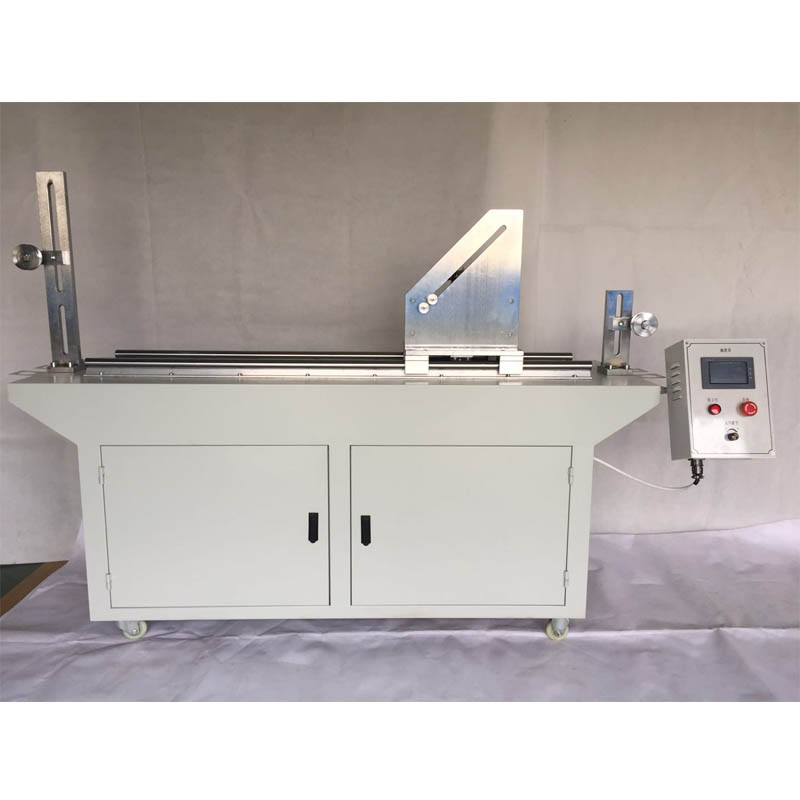Custom Brands Universal Tensile Testing Machines for Material Strength Evaluation
The Importance of Custom Brands in the Tensile Testing Industry
In the realm of materials testing, particularly tensile testing, the demand for precision, reliability, and customization has grown significantly. As industries continue to evolve, the need for specialized equipment tailored to unique applications has become more pronounced. This is where custom brands of tensile testers come into play, offering solutions that not only meet but exceed the standard requirements of various sectors including aerospace, automotive, construction, and textiles.
Understanding Tensile Testing
Tensile testing is a fundamental method used to evaluate the mechanical properties of materials. It involves stretching a sample until it breaks, which generates critical data regarding the material's tensile strength, yield strength, elongation, and modulus of elasticity. The results obtained from tensile tests are essential for engineers and product developers to ensure that materials meet safety standards and performance criteria.
The Rise of Custom Brands
The market has witnessed a noticeable shift towards the development of custom brands for tensile testers. This trend can be attributed to several factors
1. Unique Material Requirements Different industries utilize a variety of materials, each with distinct properties. Custom brands can design tensile testers that cater specifically to the materials being evaluated. For example, a manufacturer emphasizing flexible polymers may require a tensile tester with a specific grip and testing speed, while a company focused on high-strength metals may need a machine capable of applying much greater forces.
2. Enhanced Features and Technology Custom brands often incorporate cutting-edge technology into their tensile testing machines. This includes advanced data acquisition systems, software that provides real-time analysis, and automation capabilities that streamline the testing process. With the integration of digital technologies, custom testers can also offer enhanced precision and repeatability, which are crucial for meeting today’s rigorous quality control standards.
3. User-Centric Design Custom brands recognize that user experience is key to effective testing. By involving clients in the design process, these brands can create machines that not only function optimally but are also user-friendly. This may include ergonomic designs, intuitive interfaces, and easy-to-understand software that simplifies the data analysis process.
4. Scalability and Flexibility Businesses are often looking to scale their operations or adapt to new testing requirements. Custom brands can provide modular systems that allow companies to upgrade their testers as their needs evolve. This flexibility ensures that investments in tensile testing technology are long-lasting and adaptable.
custom brands tensile tester

5. Regulatory Compliance Different industries are governed by strict regulations regarding material testing. Custom brands are adept at navigating these regulatory landscapes, ensuring that their equipment meets compliance standards. This is particularly crucial in sectors such as aerospace and pharmaceuticals, where the consequences of material failure can be catastrophic.
Choosing the Right Custom Brand
When selecting a custom brand tensile tester, businesses should consider several important factors
- Industry Experience Look for brands with a proven track record in your specific industry. Their experience will ensure they understand the unique challenges and requirements of your materials.
- Technical Support Ensure that the brand offers robust technical support and training. This will help your team utilize the equipment to its full potential.
- Reputation and Reviews Investigate the reputation of the brand among its clients. Testimonials and case studies can provide insights into the performance and reliability of the equipment.
- Cost vs. Value While custom solutions may require a higher upfront investment, it’s crucial to evaluate the long-term value they bring concerning efficiency, accuracy, and compliance.
Conclusion
As industries grapple with evolving material needs and stringent testing requirements, the role of custom brands in the tensile testing domain is more crucial than ever. These specialized solutions not only ensure accurate evaluation of material properties but also enhance productivity and quality assurance across various sectors. By investing in custom tensile testers, businesses can safeguard their products, streamline their testing processes, and ultimately enhance their competitiveness in the global market. The future of tensile testing is undoubtedly linked to innovation and custom solutions, setting the stage for a new standard in materials testing.
-
Why the Conductor Resistance Constant Temperature Measurement Machine Redefines Precision
NewsJun.20,2025
-
Reliable Testing Starts Here: Why the High Insulation Resistance Measuring Instrument Is a Must-Have
NewsJun.20,2025
-
Flexible Cable Flexing Test Equipment: The Precision Standard for Cable Durability and Performance Testing
NewsJun.20,2025
-
Digital Measurement Projector: Precision Visualization for Modern Manufacturing
NewsJun.20,2025
-
Computer Control Electronic Tensile Tester: Precision and Power for the Modern Metal Industry
NewsJun.20,2025
-
Cable Spark Tester: Your Ultimate Insulation Assurance for Wire and Cable Testing
NewsJun.20,2025
 Copyright © 2025 Hebei Fangyuan Instrument & Equipment Co.,Ltd. All Rights Reserved. Sitemap | Privacy Policy
Copyright © 2025 Hebei Fangyuan Instrument & Equipment Co.,Ltd. All Rights Reserved. Sitemap | Privacy Policy
